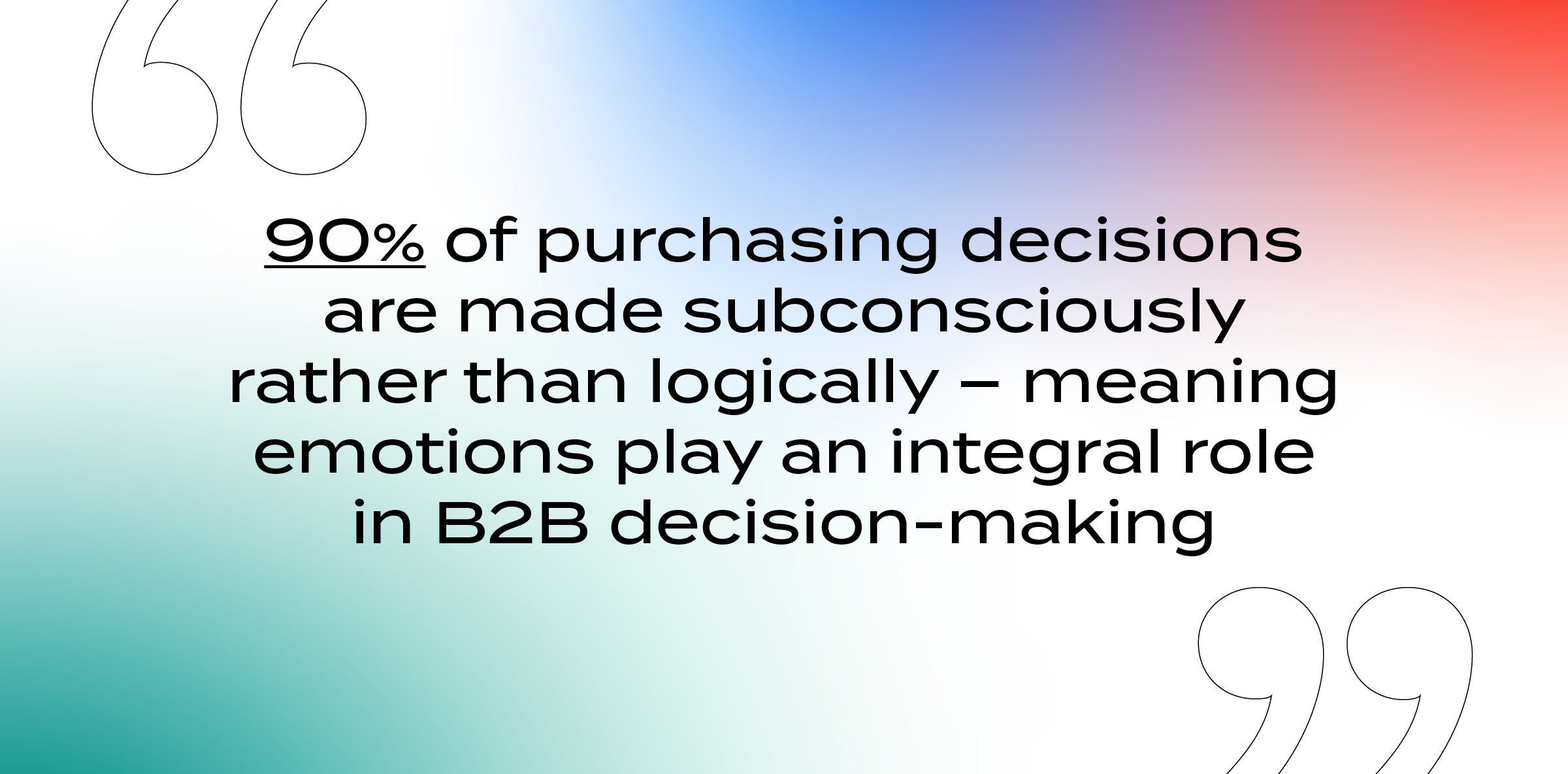When businesses sell to other businesses, they can often believe buying decisions are based exclusively on hard facts and dry logic.
“Who cares what colour the logo is or what we stand for? What my customer cares about is the technical specs of our product versus our competitors’ and the price. Not: azure blue versus cyan on our logo, or our mission and purpose.”
However, recent research shows the exact opposite is true.
A study into the role of “emotion” in B2B buying carried out by Google, Gartner and Motista found that B2B buyers’ decisions were based more on emotions and less on facts and figures than B2C buyers.
Yes, you read that right. B2B buyers are more emotional than B2C buyers. And by quite some margin.
According to the findings, not only did the B2B brands drive more emotional connections than B2C brands, but they “weren’t even close.”
Of the hundreds of B2C brands studied, most had emotional connections with between 10% and 40% of consumers. Meanwhile, the majority of B2B brands they studied surpassed the 50% mark, leading the study to conclude B2B customers are significantly more emotionally connected to their vendors and service providers than consumers.
Meanwhile further research has found that personal value has two times the impact on B2B buyers and 90% of purchasing decisions are made subconsciously rather than logically – meaning emotions play an integral role in B2B decision-making.
Basically, B2B buyers are a lot more loyal to and guided by strong brands than you might think.
And yet many B2B brands are often still… well… how to phrase this?… uninspiring?
The evidence is there that strong brand strategies in the B2B sphere can have a transformational impact on the fortunes of companies who sell to other businesses.
That evidence comes in the form of B2B companies that have pulled so far ahead of the pack, we almost think of them as B2C brands. Dropbox anyone? Shopify? Amazon?
Yes, I did just say Amazon. But I meant Amazon Web Services. Currently estimated to host up to 50% of the world’s websites.
That’s another one to read again. Fifty percent (50%). Of the world’s. Websites.
Now, I’m sure AWS competes admirably with its competitors from a technical point of view. But you don’t get to a 50% global market share of something, that’s as dominating a force in the world as website hosting, without a little help from the power of brand.
So Amazon has managed to lever the power of its online retail brand into the supposedly facts and figures-based B2B world of computing. And dominate the market.
Yet, B2B companies generally still focus on features, benefits and pricing, rather than the emotional brand experience that research shows actually works on customers.
I challenge you to take a look at your B2B brand right now.
Do you feel your customers are genuinely excited by it? Are they inspired? If not, maybe it’s time to put some emotion into it?
Get in touch today if you would like any guidance with developing your brand.
